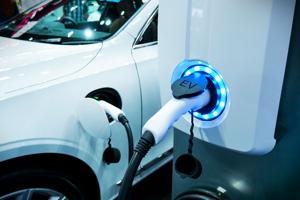Michigan electric vehicle battery plant receives $189M state subsidy

(The Center Square) – Michigan will spend about $189 million subsidizing LG Energy Solutions.
The company is investing $1.7 billion in its Holland facility in west Michigan.
LGES says the expansion will create 1,200 jobs and quintuple the plant’s capacity to help produce lithium-ion polymer battery cells and packs for electric vehicles. The plant aims to use a new long-cell design to improve energy density and boost driving range to calm range anxiety, since the vehicles’ driving range depends on weather and the charging network.
The Michigan Strategic Fund approved the following incentives to subsidize the private company:
A $10 million Michigan Business Development Program performance-based grant dependent on the creation of up to 1,200 jobs. A $10 million Jobs Ready Michigan performance-based grant.A 20-year Renaissance Zone to the city of Holland, valued at $132.6 million.Up to $36.5 million in Community Development Block Grants to Allegan County to reimburse LGES for purchasing equipment, with an additional $50,000 for grant administration.
John Mozena, president of the Center for Economic Accountability, a nonprofit organization for transparent economic development policy, questioned why taxpayers should fund a private business renovation.
“History tells us that states where governors are running for reelection are twice as likely as other states to see a sudden large jump in big-ticket subsidy deals. We predicted this would happen in Michigan in 2022 with the expansion of the state’s subsidy programs, and recent headlines are certainly bearing that out,” Mozena told The Center Square.
LG Energy Solution’s recent initial public offering makes it among the largest companies in the history of South Korea, LGES’ country of origin. The company raised $10.8 billion and became the country’s third-most-valuable company in a single day.
“The reality is that LG is building the plant there because it makes the most business sense to do so on land they already own and near their existing customers, not because they’re getting subsidies that’ll make no noticeable difference in their corporate bottom line,” Mozena said. “It’s also worth remembering that LG has already been caught by federal investigators wasting stimulus money in its existing Holland battery plant and had to return $842,000 to taxpayers.”
Democratic Gov. Gretchen Whitmer’s proposed $74 billion budget aims to spend $50 million subsidizing people buying electric vehicles, plus add another $10 million to electrify the state’s fleet. The governor said she intends to transform Michigan into the “epicenter” of electric vehicles, and taxpayers are footing the bill whether they drive the vehicles or not.
“When you or I make a speculative investment in a company, there’s a government requirement that we be warned that we risk losing all of our money if the investment goes bust,” Mozena said. “But when the government’s making the investment with our money, we only ever hear about the promised benefits and there’s never a single word said about the risk. Wasn’t one set of disastrous subsidies for green energy companies in Michigan during the Granholm administration enough?”
Mozena cited the solar panel plant built with public funds by LG Electronics in Huntsville, Ala., in 2019.
“But in February of this year, the company said it was leaving the solar panel business entirely and shutting down its Huntsville production line. Nothing’s protecting this Holland battery plant from that exact same kind of fate down the road, if conditions change,” he said.
Recent testimony by the Mercatus Center to the Michigan House Appropriations Committee revealed that $1.8 billion has been given out to General Motors and the GM/LG, Ultium partnership for their Lansing area battery plant project. The Michigan Economic Development Corporation is promising LG another $189 million for the Holland plant expansion, with the expectation the handout could balloon to as much as $525 million.
Recent work by James Hohman, fiscal director at the Mackinac Center, found that GM could take the money, only create a portion of the promised jobs (3,200 vs. 4,000), and then eliminate them in as little as six months.
“The rush of new subsidies that are being approved by the MEDC should be looked at with skepticism,” Mackinac Center Environmental Policy Director Jason Hayes told The Center Square. “While the headlines trumpet the jobs these handouts claim to create, companies like GM could take the money, only create a portion of the promised jobs and then eliminate them in as little as six months. There are better ways to ensure companies like LG and GM choose Michigan as a preferred location to do business, chief among them are low tax rates and reasonable regulation.”
Disclaimer: This content is distributed by The Center Square

